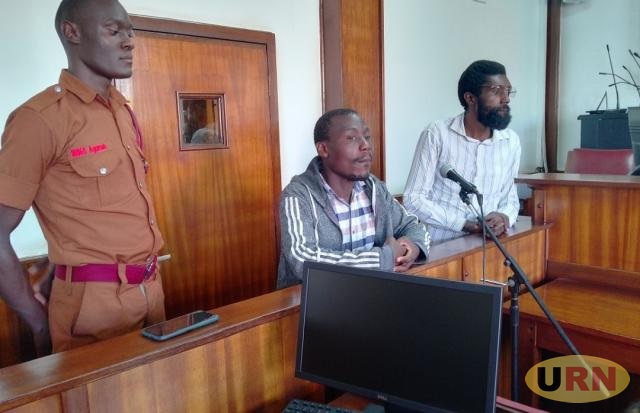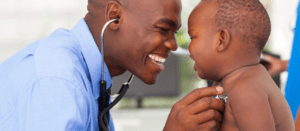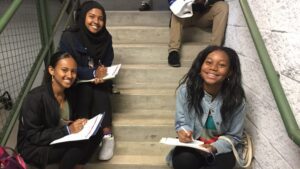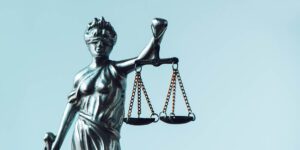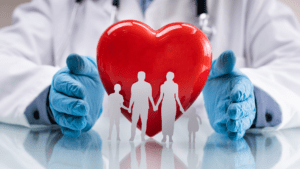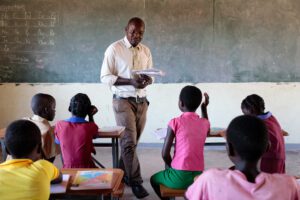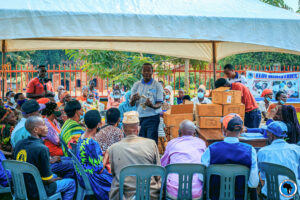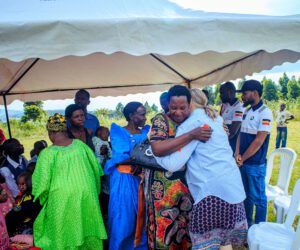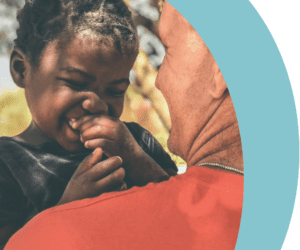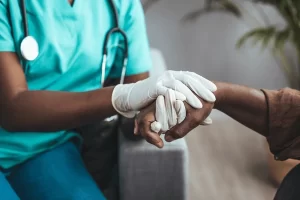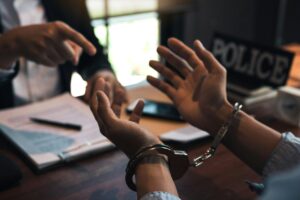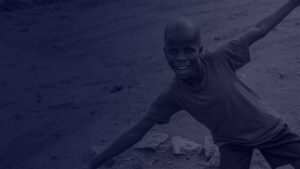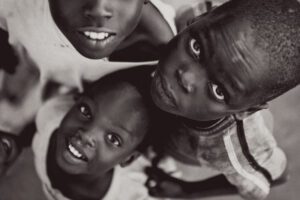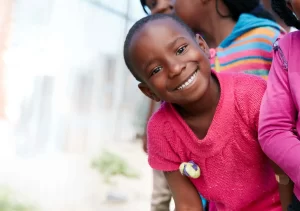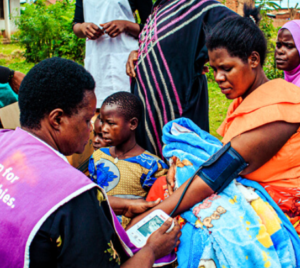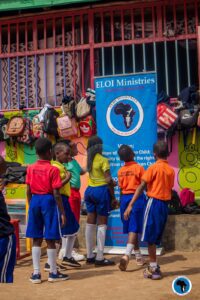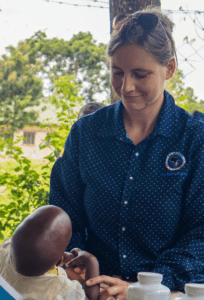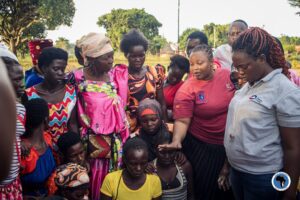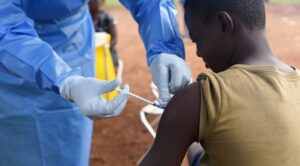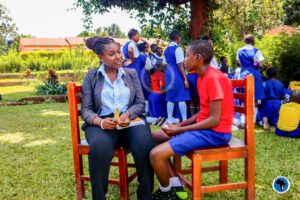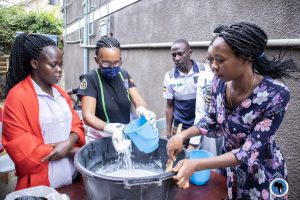The state of human rights in Uganda is a complex and multifaceted issue, shaped by historical, political, and socio-economic factors. While the Ugandan Constitution guarantees fundamental human rights, the reality on the ground often tells a different story. Issues such as freedom of expression, assembly, and the press face significant challenges, with reports of arbitrary arrests, intimidation, and violence against activists, journalists, and opposition figures. Additionally, marginalized groups, including women and children frequently experience discrimination and abuse. In this challenging environment, ELOI Ministries Uganda has emerged as a crucial player in advocating for human rights and educating communities about their rights, striving to create a more just and equitable society.
In Uganda, freedom of expression and the press is often under siege. Journalists and media houses that dare to criticize the government or report on sensitive issues face threats, harassment, and sometimes violence. This environment of fear stifles open debate and the free flow of information, which are essential components of a healthy democracy. The government has also enacted laws that restrict online expression, further limiting the space for dissent and free speech. ELOI Ministries Uganda recognizes the importance of these freedoms and works tirelessly to promote and protect them. Through workshops, seminars, and public awareness campaigns, ELOI Ministries educates individuals about their right to free expression and the critical role of a free press in a democratic society. By partnering with local media organizations, ELOI Ministries also advocates for the protection of journalists and the repeal of restrictive laws.
Another significant human rights issue in Uganda is the suppression of freedom of assembly and association. Peaceful protests are often met with heavy-handed responses from security forces, including the use of excessive force, arbitrary arrests, and detention without trial. This hostile environment discourages civic participation and undermines the ability of citizens to advocate for their rights and hold the government accountable. ELOI Ministries Uganda addresses this issue by providing legal support and representation to those who have been unjustly detained or harassed for participating in peaceful demonstrations. The organization also conducts training sessions on non-violent protest and the legal rights of demonstrators, empowering individuals to advocate for change within the boundaries of the law.
Human rights abuses against marginalized groups, such as women, children, and the LGBTQ+ community, are pervasive in Uganda. Women and girls face high rates of gender-based violence, including domestic abuse, sexual assault, and harmful practices such as child marriage and female genital mutilation (FGM). Children are often victims of exploitation, including child labor and trafficking. The LGBTQ+ community faces widespread discrimination, social ostracism, and violence, with same-sex relationships being criminalized under Ugandan law. ELOI Ministries Uganda takes a multi-faceted approach to addressing these issues, focusing on education, advocacy, and support services. The organization runs awareness campaigns to challenge harmful cultural norms and promote gender equality, providing safe spaces and counseling services for survivors of violence. ELOI Ministries also works to protect the rights of LGBTQ+ individuals, offering legal aid and advocating for the decriminalization of same-sex relationships.
Access to justice remains a significant challenge for many Ugandans, particularly those from low-income and rural communities. Legal services are often expensive and inaccessible, and the justice system is plagued by corruption and inefficiency. This lack of access to justice exacerbates the marginalization of vulnerable groups and allows human rights abuses to go unchallenged. ELOI Ministries Uganda addresses this gap by providing free legal aid to individuals who cannot afford legal representation. The organization’s legal team works tirelessly to ensure that marginalized individuals have their day in court and that justice is served. Additionally, ELOI Ministries conducts legal literacy programs to educate communities about their rights and how to navigate the legal system, empowering individuals to seek redress for injustices.
Education is a cornerstone of ELOI Ministries Uganda’s approach to human rights advocacy. The organization believes that knowledge is power and that educating individuals about their rights is the first step towards creating a more just and equitable society. ELOI Ministries conducts a wide range of educational programs, targeting schools, community groups, and local leaders. These programs cover topics such as human rights, civic responsibility, and the rule of law, equipping participants with the knowledge and skills to advocate for their rights and the rights of others. By fostering a culture of human rights awareness, ELOI Ministries is helping to build a more informed and engaged citizenry.
ELOI Ministries Uganda also places a strong emphasis on community engagement and empowerment. The organization works closely with local communities to identify their specific needs and develop tailored solutions. This grassroots approach ensures that the voices of the most marginalized and vulnerable are heard and that their rights are protected. ELOI Ministries trains community leaders and human rights defenders, equipping them with the knowledge and tools to advocate for their communities. These trained individuals then serve as a vital resource, raising awareness about human rights issues and mobilizing community action.
Advocacy and lobbying are critical components of ELOI Ministries Uganda’s human rights work. The organization engages with policymakers, government officials, and international bodies to advocate for legislative and policy changes that promote human rights. ELOI Ministries’ advocacy efforts focus on a range of issues, including gender equality, children’s rights, and the protection of marginalized communities. By building coalitions with other civil society organizations and leveraging international human rights mechanisms, ELOI Ministries works to hold the Ugandan government accountable for its human rights obligations.
ELOI Ministries Uganda’s impact on human rights education and advocacy is significant and far-reaching. The organization’s efforts have empowered countless individuals to stand up for their rights and demand justice. Success stories abound, from women who have escaped abusive relationships and found support and empowerment through ELOI Ministries’ programs, to communities that have mobilized to challenge harmful practices and advocate for change. These success stories demonstrate the transformative power of human rights education and advocacy.
Despite the many challenges, ELOI Ministries Uganda remains committed to its mission of promoting and protecting human rights. The organization’s work is guided by a deep belief in the inherent dignity and worth of every individual and a commitment to creating a more just and equitable society. Through education, advocacy, and community engagement, ELOI Ministries is helping to build a Uganda where human rights are respected and protected for all.
In conclusion, the state of human rights in Uganda presents significant challenges, with issues ranging from restricted freedoms of expression and assembly to widespread discrimination against marginalized groups. However, organizations like ELOI Ministries Uganda are making a profound difference by educating communities about their rights and advocating for change. Through comprehensive educational programs, legal support, community engagement, and advocacy efforts, ELOI Ministries empowers individuals to understand and assert their rights, fostering a more informed, engaged, and just society. The impact of ELOI Ministries’ work is evident in the positive changes seen in the lives of countless individuals and communities, demonstrating the critical importance of human rights education and advocacy in Uganda.
Author:: Bagombeka Job

